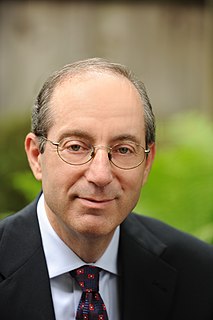A Quote by Ed Helms
I think the culture of Civil War re-enacting is also incredibly fascinating.
Quote Topics
Related Quotes
It's a fascinating culture [the South in the Civil War period] and so rife with comedic possibilities. And not in a way that...I have no intention of making fun of re-enactors. I think it's more just a celebration of their passion and enthusiasm, which is so infectious and maybe at times a little misguided.
So about 80 years after the Constitution is ratified, the slaves are freed. Not so you'd really notice it of course; just kinda on paper. And that of course was at the end of the Civil War. Now there is another phrase I dearly love. That is a true oxymoron if I've ever heard one: "Civil War." Do you think anybody in this country could ever really have a civil war? "Say, pardon me?" (shoots gun) "I'm awfully sorry. Awfully sorry."
I think there's evil on both sides [of Syria], and I think that's one reason I don't want to be involved in civil war. I see things in personal terms. I just can't see sending one of my sons - or your son or daughter - to fight in a civil war, where on one side we have a dictator, who in all likelihood gassed his people.
Why did John Wilkes Booth do it? In My Thoughts Be Bloody young historian Nora Titone is one of the few to have genuinely explored this question. In doing so, she has crafted a fascinating psychological drama about one of the central events of the Civil War: the assassination of Abraham Lincoln. This book promises to stimulate lively historical debate, and will be a treat for every Civil War buff who always pondered that haunting question, “what made him pull that trigger?” Bravo on a marvelous achievement.
One culture I find fascinating to juxtapose against American culture is the culture of Germany. They've gone through a long process through their art, poetry, public discourse, their politics, of owning the fact of their complicity in what happened in World War II. It's still a topic of everyday conversation in Germany.
What it targets is not something that's really looked at a lot in terms of the war. This is stuff that's off the beaten path in terms of what we think of every time you start a Civil War history or a Civil War presentation. It's usually about the military and the soldiers and all that stuff. And this is not. It's the backdrop to a place and a time and circumstances that didn't have anything to do with that.
The warlords took part in atrocities during the civil war in Afghanistan. They looted, they raped, they killed. They have become incredibly empowered and entrenched. They live in mansions, they have jobs in the government, and they're incredibly powerful. In Kabul, people don't want to speak about it too publicly, because these people are essentially like Tony Soprano.
I didn't know enough about the Civil War or its lingering effects as we all should. It's really easy to think that the Civil War was the end of slavery, and the triumph of our collective conscience and humanity over oppression. Sadly, the oppression and systemic subjugation of people of color in this country still exists.
































